Draw a Caricature
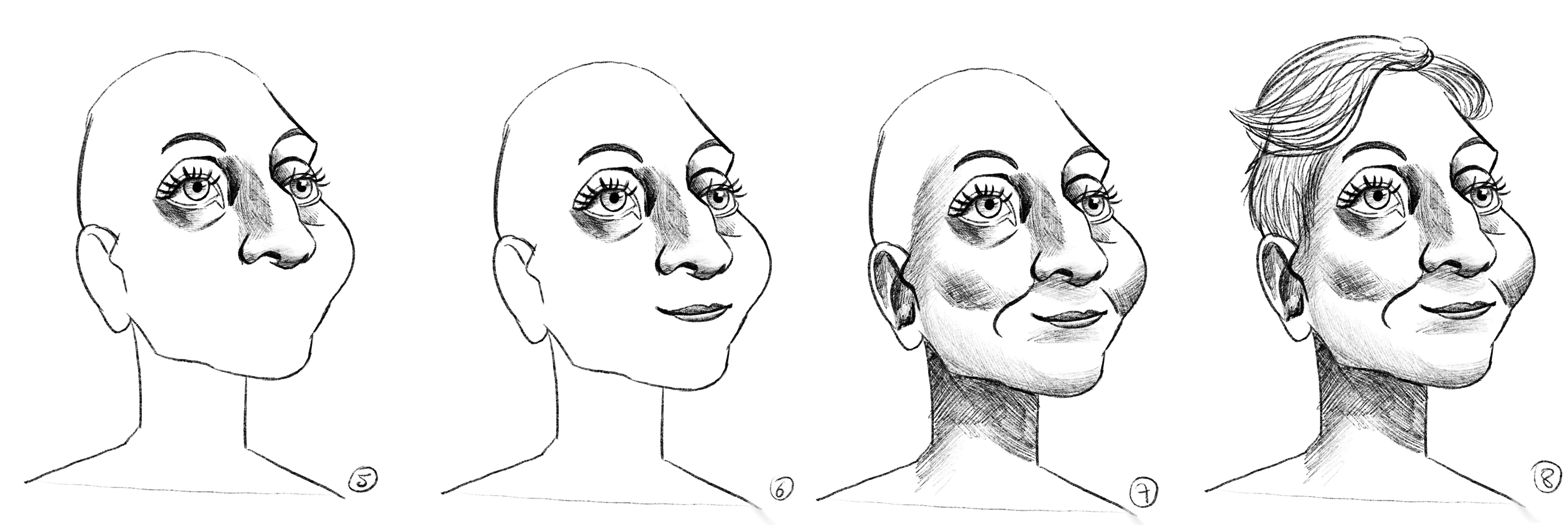
Hello everyone, today I am going to talk to you about a drawing style that may be more complex than it looks: caricature. In this article, we will look at some essential basics to get you started in drawing caricatures, allowing you to enjoy caricaturing anyone you want.
Prepare your pencils, your paper or your tablet, and most importantly, your creativity!
WHAT IS CARICATURE?
By definition, a caricature is a grotesque and often humorous representation of a person. To achieve this, the facial or body features of the person portrayed are exaggerated and distorted.
A caricature is therefore not intended as a realistic drawing, but it is still important to have a basic knowledge of anatomy to draw one, so that the result is not too awkward.
I refer you to these articles if you want to deepen your knowledge in anatomical drawing:
Draw a woman's face
Draw a man's face
Draw a face from the side
EXAMPLES OF CARTOONS TO DRAW
As we can see in the examples below, a caricature is rarely flattering; it's about finding the right balance between exaggeration, humor, and resemblance to the person drawn.
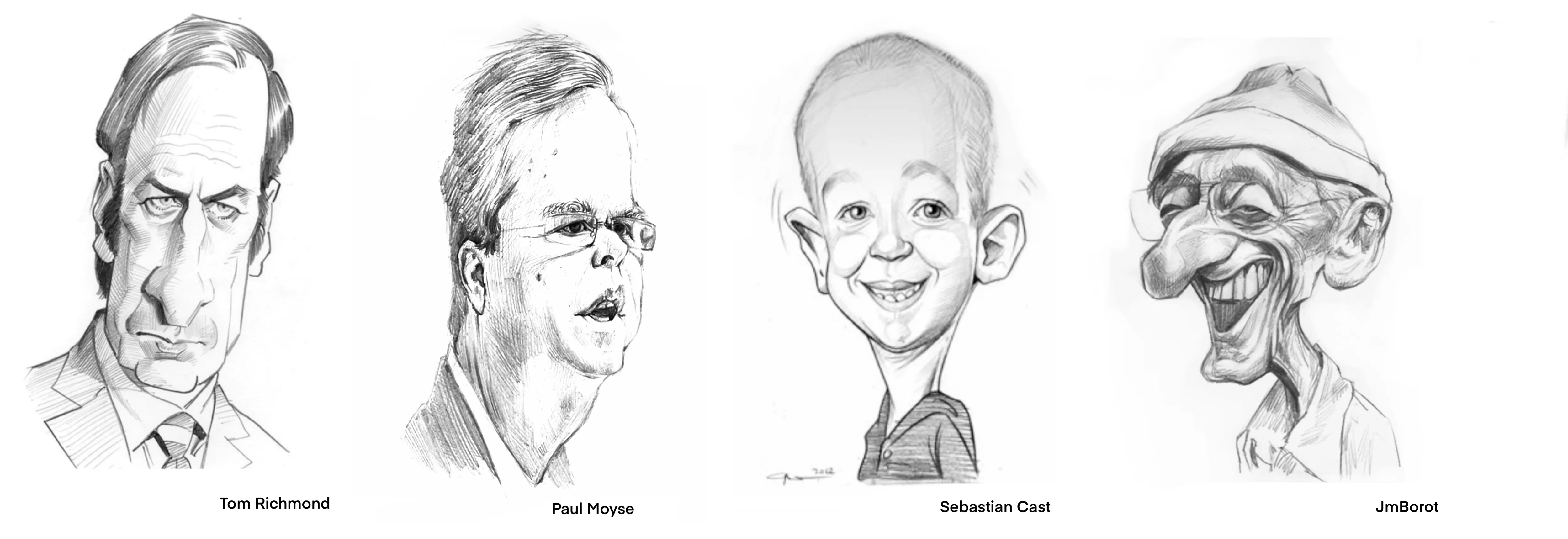
We will now see how to draw caricatures with 3 different examples.
DRAWING THE CARICATURE OF A YOUNG GIRL
For this first example, I chose a somewhat challenging photo because the girl does not have particularly distinct facial features, so I will have to observe all the elements that make up her face.

Note: caricatures are usually done very quickly, so to maintain this spontaneous look I will make almost no construction lines.
Having carefully observed her face, I now move on to the drawing:
I start by drawing the outlines of the face, exaggerating the length of the neck, the shape of the chin (smaller and pointy), and emphasizing the cheeks and cheekbones more. I also quickly mark a reference to properly place the following elements.
I drew the nose by enlarging the nostrils and reducing the size of the nose.
I drew her eyes; I found her look a bit sad, so I decided to depict huge droopy eyes.
I added eyebrows; I chose to make them fairly faithful to the photo, but I could also have made them fall more on the eyes to enhance her sad expression.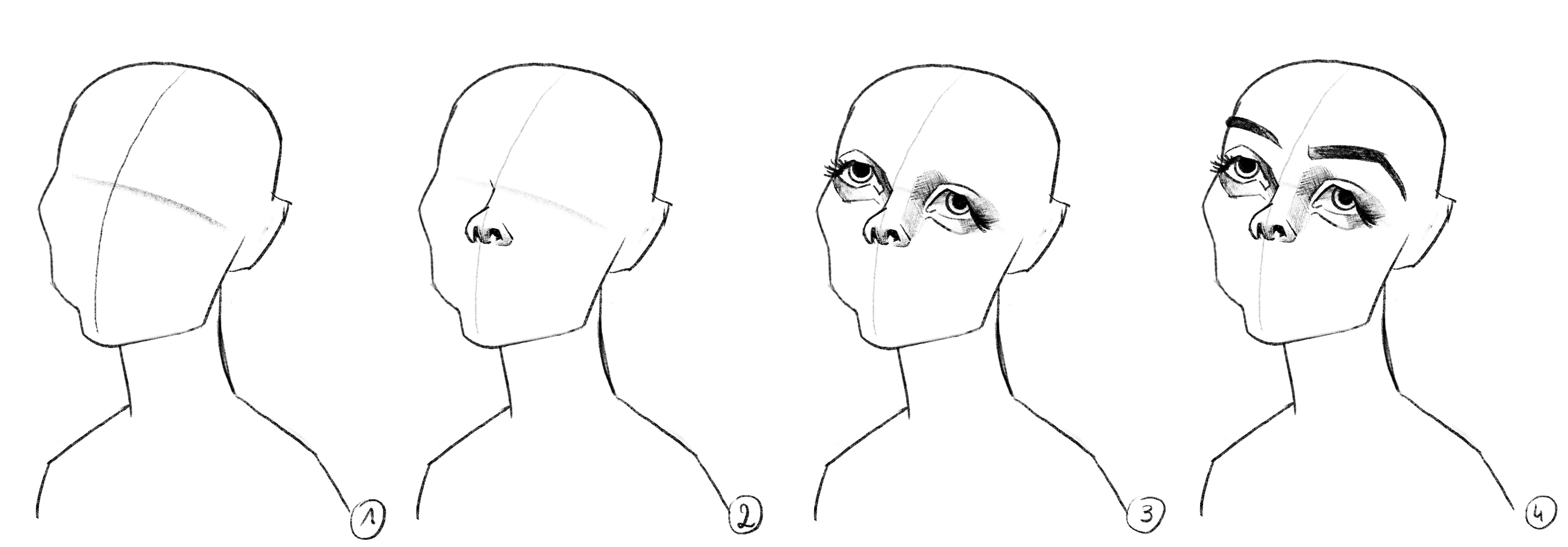
I draw the lips and cupid's bow, opting for a very small, low-set, rather sad mouth.
To add a bit of volume to the drawing, I add some rather simple shadows.
I drew the hair, followed its shape by exaggerating the number of strands.
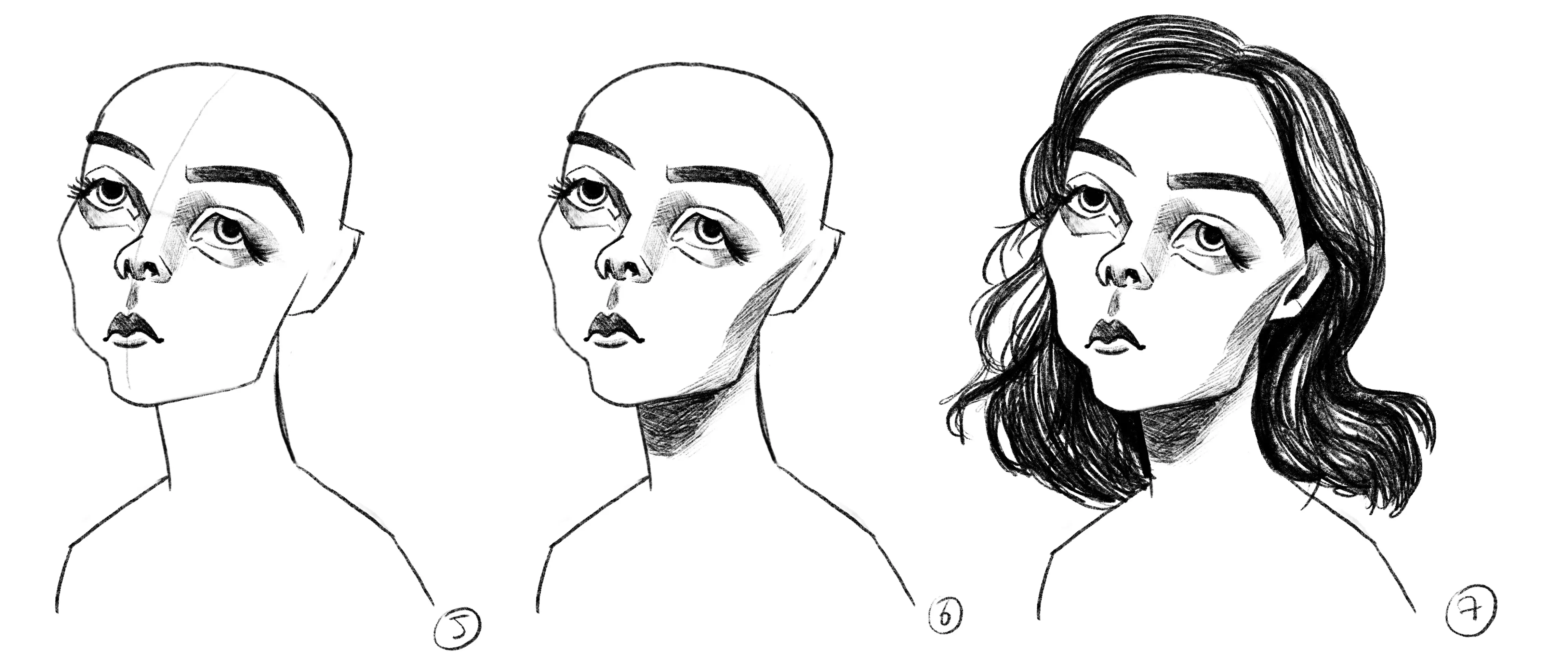
DRAW THE CARICATURE OF A YOUNG MAN
For this second example, I've chosen a young man with slightly more pronounced features. To practice, you can label your analysis of the different facial elements, but it might be interesting to just observe the person for a few minutes and then draw directly; the more you practice the easier it will be to see the important elements.
I start by drawing the shape of his face, I accentuate the square aspect and strongly define his brow ridges and cheekbones.
I draw the nose, emphasizing the bump and making it bigger.
I am shrinking the eyes and improving the shading to give a sense of depth.

I add the eyebrows, making them bigger, more pronounced, and tighter.
I add the mouth, without emphasising its size or shape, but rather pulling the lips to the right as if to give a hint of a smile.
I add some quick shading.
I add the hair; to further accentuate the square effect, I mark right angles at every corner of the haircut.
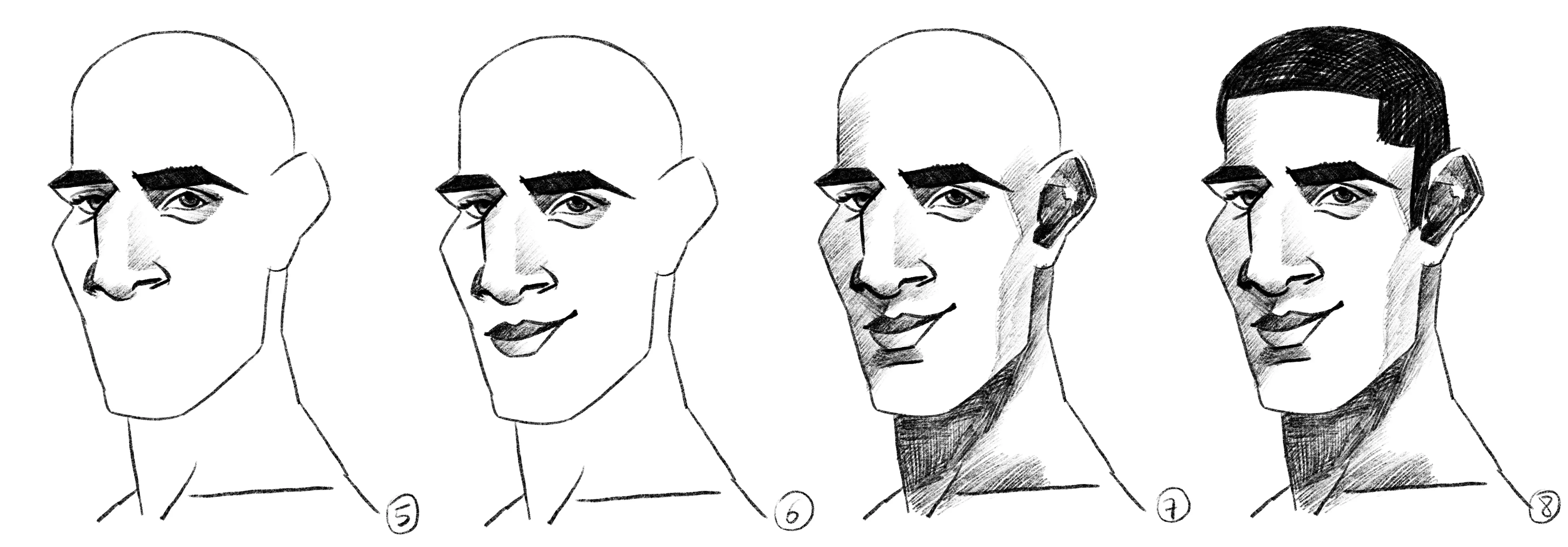
THE CARICATURE OF AN ELDERLY LADY
For this last example I have chosen a slightly older lady. The first thing that strikes me is that her features are very soft and rounded; I will try to accentuate her curves.
I draw the shape of the face exaggerating the cheeks.
I position the nose, enlarge it a little and make sure it is very rounded.
I add the eyes, making them very large and wide-eyed while keeping round shapes.

I add her very thin and arched eyebrows.
I draw the mouth, I make it very thin and slightly smiling.
I add depth with shading, which helps to highlight the cheeks.
I add the hair, exaggerating the lengths: short on the sides and long on top.

THE 4 KEY POINTS TO REMEMBER FOR THIS TYPE OF DRAWING
Now that we have seen 3 different examples, here are the key points to remember when you will be making caricatures:
1: Observation is the key, by observing well you can transcribe the most interesting elements but also the character or attitude of the person, which is often the most striking.
2: Exaggeration, you must not be afraid to distort or amplify certain elements, this is what makes a caricature successful. Without it, it looks like a clumsy drawing.
3: Anatomy, playing with proportions doesn't mean forgetting them; to successfully create a caricature, it's important to already know the basics of anatomy, otherwise the drawing will just look awkward.
4: Keep your style, not everyone will draw cartoons in the same way and that's not important! The main thing is to have fun and entertain others, keep your graphic touch and have fun playing with it to create your caricatures, the final result will only be more interesting!
Writer and illustrator: Chloé

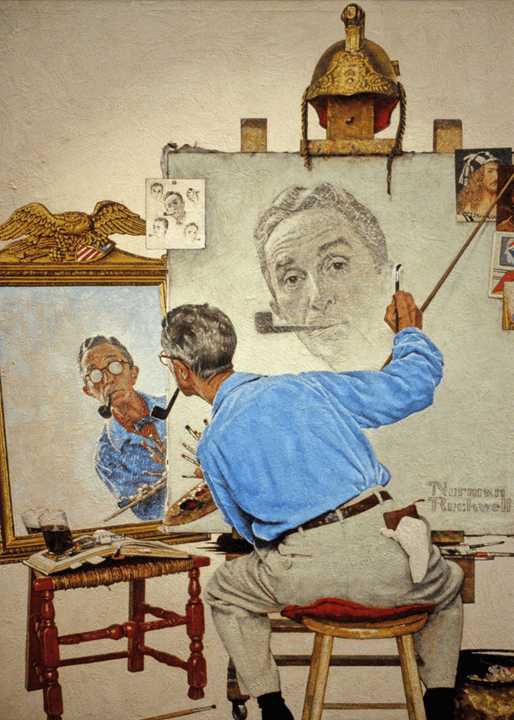
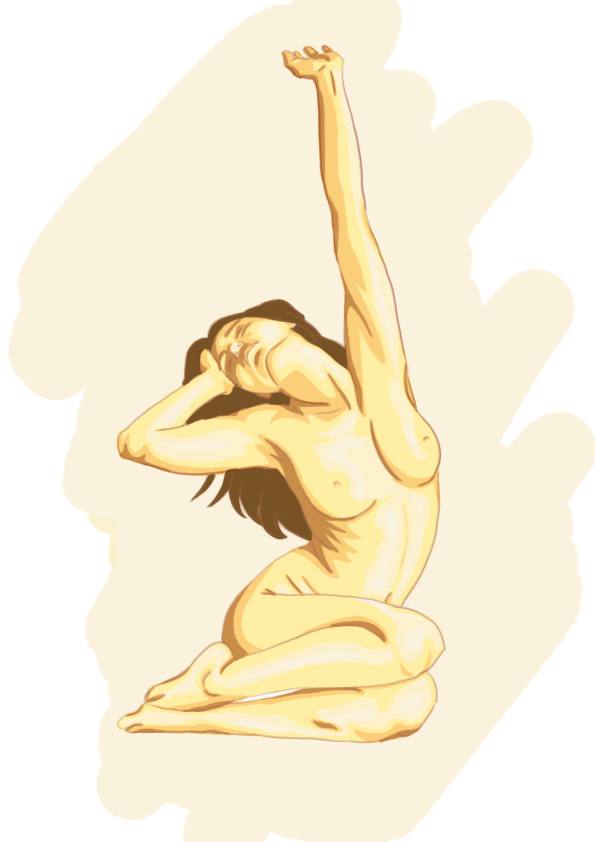
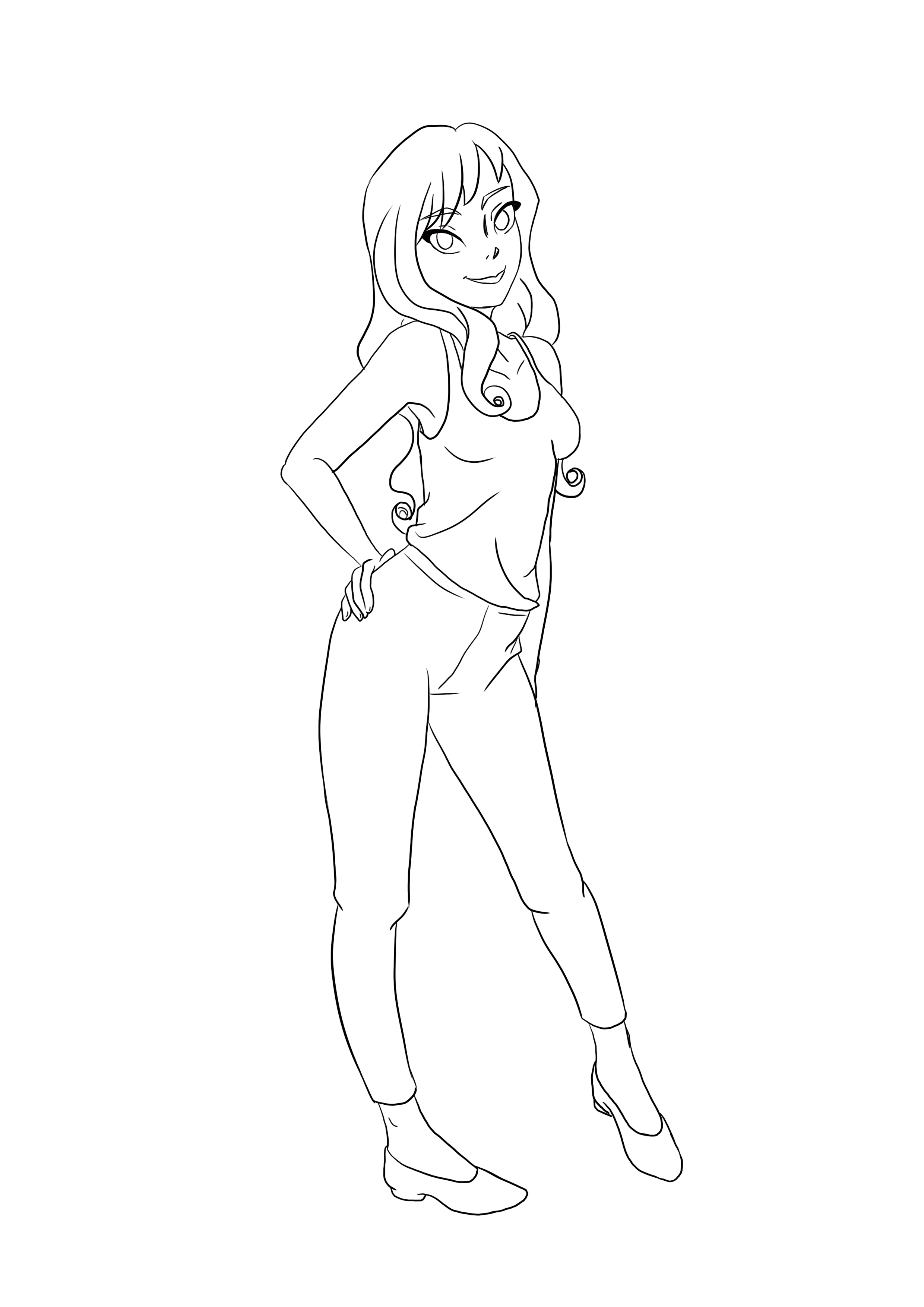
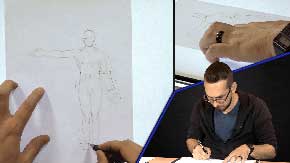
Hello
It would be great to have a course on caricature.
Hello Jessie, in the Character training, you have a course on caricature 😉